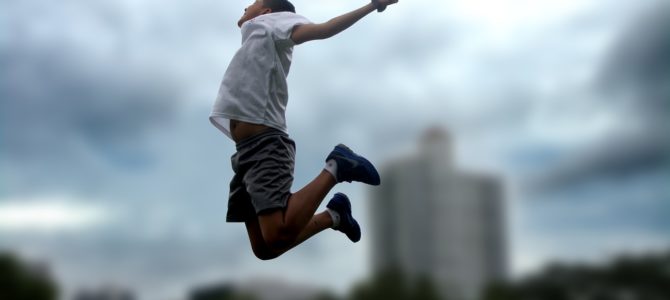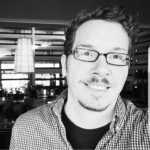
One of my first memories is of my father holding a bottle of pills in his hand, angrily sobbing, and ranting about how the world would be better without him. I was probably around seven years old then and my memory, as vivid and tangible today as it was in that moment, is of determination rather than fear or panic. I had done this before.
My grandmother told me my father would fall into deep and sometimes violent periods of depression as far back as a child, and often use suicide as an emotional weapon. She had grown to shake her head and simply walk away.
It took me far longer to understand or appreciate why. My memory ends with cleaning up the pills on the floor that he threw against the wall before collapsing into bed crying softly. I felt helpless, but also a strong sense of responsibility. I believed my job was to save him. I never really let go of that mission, until the day I had to.
I knew what he felt later, as I found myself in a similar place with a similar view of my own future. But my experience was a little different. I thought my life was over when I tested positive for HIV. I was in my mid-20s, in college, and completely on my own. I had a bright outlook on my future, dreaming of becoming a published author and political writer.
But the moment I walked out of the clinic holding that packet of information about my new illness, all of that changed. I sat in my car staring out at a future that looked very near and very frightening. I shared it all with my friends, but I still felt extraordinarily alone. In 2008, many doctors still described HIV as a terminal illness.
This Was a Severe Struggle for Me for Years
It took a little while and some courage to see a doctor and begin medication, because the weight of my depression and certainty of having no future made pursuing expensive medical treatment seem futile. But my friends persisted, so I began treatment. For a moment, my sense of hope began to bloom inside me again.
This feeling of possibility abruptly ended the first night I took the new wonder drug that was supposed to extend my life. I became sicker than I can easily describe, and the pain, migraines, and constant vomiting lasted four months. In an exceptionally weak moment one night, I stared at my greying face with bloodshot eyes streaming involuntary tears, and asked myself if it was worth it.
I made a choice that night that the rest of my life, however long I had left, was going to be mine alone and not dictated by the painful regimen of my medication cycle. My doctor had been clear when he waved away my complaints of side-effects, that if I stopped the medication I would die within a year. I decided to take that chance.
I sat the bottle of pills down on the sink that night and chose not to turn back. I accepted everything that was happening to me and realized I was helpless to fight it. In that acceptance, I found a sense of relief and purpose. I joked often that everyone wonders how he is going to die, and I was lucky enough to already know.
The depression never lifted and each cold, cough, or tired day sent warnings through my mind that my body was collapsing on me and the moment I had been expecting was there. So many times I fell into bed, softly crying and just waiting for the pain to stop and finally experience that moment I had become obsessed with finding.
In 2010, I wrote my book and fulfilled a dream I had almost given up on. The book was titled “Death Is Taking Me,” from a joke my friends would often say whenever they felt sick. The book was part autobiography and part guide for others who found themselves in a similar place. My thesis was that there was no purpose in continuing to fight a disease through painful treatment when one could simply enjoy the remainder of his days as well as possible. I encouraged others to find purpose in their lives despite feeling profoundly unsure if I had achieved any in mine. Then I waited.
My Dad Kept Cycling Up and Down
Meanwhile, my father was beginning a new life. He married for the third time, and this one seemed to have promise. I had grown resentful towards him after delaying college until I was 21 because I felt an obligation to stay at home with him. I didn’t think he could manage without me, and for the most part I was correct.
By age 23, I was still making us dinner every night and spending long hours talking about hope and continuing forward. But I had given up on watching him cycle continuously through these episodes of extreme hopelessness, only for me to endure stressful nights ready to call 911 at any moment and begging him to accept that he was loved. When he married, I moved out and thought that maybe my job was done.
Within a year he became extremely sick and we discovered he had suffered multiple small heart attacks. He required quadruple bypass surgery and the doctors were not confident he could survive it in his current health condition. He walked into the hospital expecting to die.
The night of his surgery, I stayed at home by the phone waiting because I could not bring myself to be in the hospital waiting for him to die. He thought I didn’t go to the hospital because I didn’t love him. But he did make it, and his recovery looked promising. For days after, a continuous flow of people visited to wish him well. I saw him genuinely happy and content for a very short time as he smiled and told me of all the people who had come to see him.
The peak of his joy took a sharp, sudden drop when the visitors stopped coming and he was ready to go home. He sat in his chair with his wife across from him and me on the floor watching a movie as he quietly wept. His wife and I took turns staying up all night to watch him.
On my last night with him, he was quiet and distant. So was I. But before I left to go home he looked at me, thanked me for staying with him, and told me he loved me. I told him I loved him too, although I felt it with frustration and anger. That night he overdosed on his medications. His wife told me he had insisted on getting his medications himself. She realized why too late, the next morning when she saw the bottles.
I Have Made a Different and Better Choice
My story ended differently. After years passed, my ambivalence towards my life grew less and less meaningful. I often joked I needed to write a new book titled “Maybe I Was Wrong.” I didn’t die, and hadn’t gotten sick either. I had stayed distant from everyone and delayed so many things, then began to realize I had done so for nothing.
Then I got extremely sick with shingles, which nearly hospitalized me. My Jewish family insisted I see a new doctor. I did, and I was given the miracle of an unexpected sense of hope. I chose to try again.
That choice changed more than I had the capacity to realize then. My life today is something I did not think possible only five years ago. My husband, my writing, my career—all of it was never in the cards for me, as far I was concerned. I nearly allowed myself to miss out on all of it.
Today I have a manageable illness with a normal lifespan, and the choices I make affect my future once again. I have a purpose and a desire to live and experience as much as possible with my husband and the life we are building together. Suddenly decades seem paltry and far too fragile and limited. But who I am today comes far more from that moment of choice to try than all of the struggles leading up to it. It meant absolutely everything.
My father never truly got to know that sense of purpose or joy. With the burden of perspective, I better understand him now. I often wish he could have held on a little longer, and maybe we could have gotten here together. I wish he could see the life I have and that he could be a part of it.
Our separate journeys, however, demonstrate how powerful choice is to our lives. Love, friendship, and hope lift you up, but you must make the choice to grab on first. That is the hardest part for those of us reaching down to someone too lost in his own grief to look up. But for those of us lucky enough to be loved and encouraged, every single day gives us the opportunity to choose life. If my story has any message at all, it is that.









